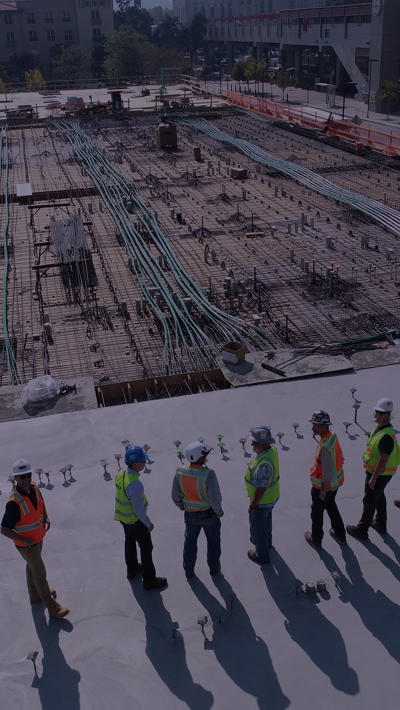Contents
We are one step closer to the creation of the New Zealand Infrastructure Commission/Te Waihanga (the Commission) and have a much stronger idea of what it will look like with the introduction pre-Easter of the establishment legislation.
We summarise and comment on the Bill. Submissions are due by 17 May 2019.
The Commission is an important strand in the Government’s strategy to lift capacity and to co-ordinate and provide certainty to the infrastructure sector. Other strands are the Construction Sector Accord and the recently announced review of the building regulatory framework.
Autonomous Crown entity
The Commission will be an autonomous Crown entity under Schedule 1, part 2 of the Crown Entities Act. This means it is required to have regard to, but is not required to follow, government policy. We think this will provide the independence from political decision-making that many submitters sought, including Chapman Tripp.
The Commission will have three to seven board members. It will be important to have a mix of skills and experience on the board given the breadth of the Commission’s functions and the importance of establishing credibility in the sector.
Late last year the Government established an Infrastructure Transactions Unit (ITU) within Treasury to perform some of the Commission’s functions. The ITU will be absorbed into the Commission at inception.
Role, functions and powers
The Bill states that the primary role of the Commission is to “co-ordinate, develop and promote an approach to infrastructure that encourages infrastructure, and services that result from infrastructure, that improve the well-being of New Zealanders.”
Infrastructure is defined as physical infrastructure in New Zealand or that results in services in New Zealand.
The Commission has two broad functions; strategy and planning, and support (and transaction advisory).
Strategy and planning
The Commission’s strategy and planning functions include:
- developing broad public agreement on the Commission’s approach to infrastructure and the strategy reports that the Commission is required to produce at regular intervals, and
- providing advice relating to infrastructure, including in relation to the ability of existing infrastructure to meet community expectations, current and future infrastructure needs, priorities for infrastructure, and matters that prevent, limit or promote the efficient and effective delivery of infrastructure.
The Commission is required to deliver strategy reports to the responsible Minister. Its first strategy report is to be delivered within two years of the Bill’s enactment (disregarding any election periods that fall within this timeframe). The report must comment on the ability of existing infrastructure to meet community expectations and development priorities over the next 30 years.
While there is no requirement in the Bill for the Government to implement the Commission’s recommendations, it is required to present a formal statement in response to the House within 180 days of receiving a strategy report. This is different to the Productivity Commission, where there is no legislative requirement for the Government to respond to Commission reports.
The Minister may also direct the Commission to provide a report on any matter relating to infrastructure. The Bill does not include an express power for the Commission to prepare and publish its own reports but arguably it can do so under its general strategy and planning functions.
Support (and transaction advisory)
The Bill states that the Commission’s support functions are to:
- promote a strategic and co-ordinated approach to the delivery of current and proposed infrastructure projects
- provide and co-ordinate information about current and proposed projects, and
- provide support services to current and proposed infrastructure projects.
The Explanatory Note indicates that in undertaking its support functions the Commission will:
- be a “centre of expertise” and will provide advice on business cases, participate in project governance and working groups, and embed its staff into agencies to support projects where appropriate
- promote “best practice infrastructure delivery”, including guidance on infrastructure procurement – the proposed amendments to the Government Procurement Rules (see Chapman Tripp’s commentary here) provide some guidance on how agencies considering the procurement of infrastructure will need to engage with the Commission
- act as a “shop-front” for the market, and
- publish pipeline information drawn from central and local government in relation to infrastructure projects – this will align with the Commission’s strategy and planning function and should enable the construction sector to plan with more certainty.
The Commission’s support functions are wide ranging and will likely require substantial resources. All of its functions are advisory only and there are no decision making powers.
The Commission will need to establish strong relationships and credibility with central government, local government and private sector to lift capacity and provide co-ordination and certainty to the infrastructure sector.
Construction Sector Accord
The Accord is a shared commitment between the Government and industry to transform the construction sector. They have agreed to be guided by four key principles in their interactions with each other. These are to:
- build trusting relationships (including being transparent on the value and allocation of risk)
- be bold (fostering innovation and R&D, sharing success and learning from failure)
- value our people, and
- act with collective responsibility (acting as a custodian for the sector’s future, sharing knowledge, prioritising environmental sustainability).
The Accord is dedicated to increasing productivity and capability, improving resilience, and restoring confidence. The path to achieving these goals, according to Peter Reidy (CEO of The Fletcher Construction Company and Chair of the Accord Development Group) is “to reset the culture in order to lift our performance”.
We assume that the Commission will have a part to play in the implementation of the Accord although what this will be is not clear as yet.
Announcing the building law review before Easter, Building and Construction Minister Jenny Salesa said it delivered on one of Government’s commitments under the Accord.
Chapman Tripp has prepared a separate Brief Counsel on the consultation document for the building system legislative reform review. The deadline for these submissions is 16 June.
Our thanks to Rosa McPhee for writing this Brief Counsel.






















































